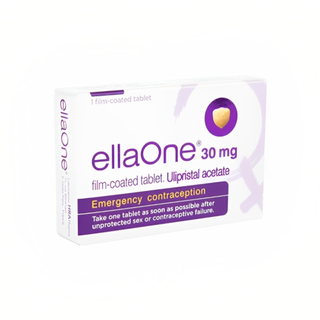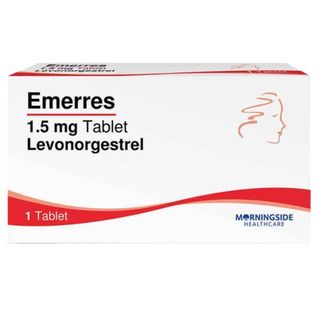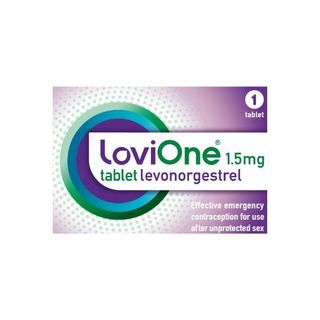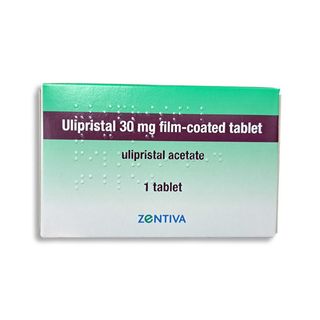
Emergency Contraception
If you’ve had unprotected sex, or if your normal contraception has failed, you may well be worried about getting pregnant. But try not to feel too anxious. The emergency contraceptive pill, normally known as ‘the morning after pill’ is very effective when it’s taken within a few days and can prevent the majority of unwanted pregnancies. The pill works by delaying or stopping ovulation and the sooner you take it, the more likely it is to work. Let’s ensure you have the information you need to make the right choice for you.
Emergency Contraception Treatments
- Out Of Stock
 EllaOne 30mg Tablet3 reviews
EllaOne 30mg Tablet3 reviews - Out Of Stock

Levonorgestrel (Generic Levonelle) 1.5mg Tablet
Levonorgestrel (Generic Levonelle) 1.5mg Tablet2 reviews - Out Of Stock

LoviOne Emergency Contraception 1.5mg Levonorgestrel Tablet
LoviOne Emergency Contraception 1.5mg Levonorgestrel Tablet - Out Of Stock

Ulipristal 30mg Tablet
Ulipristal 30mg Tablet
View recommended products for Emergency Contraception
Don't wait to get the medical help you need.
View our recommended treatments and select your preferred treatment and quantity from a list of options for you.
Selected by our UK-based medical team
Quick and easy checkout
Treatments dispatched same day (before 3pm)
Ordering as easy as 1, 2, 3
1. Find the ideal treatment
We can provide over 1099 leading medicines to treat over 94 conditions.
2. Get a free consultation
Our qualified healthcare professionals will assess your condition and needs.
3. Enjoy speedy delivery
And when the time comes to re-order, it'll only take a couple of clicks.
Advice for Emergency Contraception
About Emergency Contraception
Emergency contraception is available as an advance supply to women over the age of 18 online from The Independent Pharmacy. You can get the morning-after pill for immediate use and under the age of 18 from your local pharmacy, GP surgery or sexual health clinic.
Advanced supplies of emergency contraception allow women to be prepared for a contraceptive accident, unprotected sex or a missed pill, should one occur. A split condom or missed pills can happen to anyone and
This service provides an advanced supply of emergency contraception for use in the future. You can get a supply of the emergency contraceptive pill in advance of having unprotected sex if you:
- Are worried about your contraceptive method failing
- Are going on holiday
- Cannot get hold of emergency contraception easily
If you need an immediate supply following a contraceptive accident or unprotected sex you should see your GP or your local pharmacy to ensure you can take your emergency contraception as quickly as possible.
It is important to note that if you have had unprotected sex or have had a contraceptive accident, emergency contraception can help to prevent pregnancy,
For advice on what to do if you have missed one or more contraceptive pills, see the NHS Choices website.
We are also able to supply contraceptive tablets (the ‘pill’) to allow you to obtain a repeat supply of your regular contraceptive pill without the need to see your GP.
What Emergency Contraceptive pills are available?
There are two available single dose treatments for emergency contraception; Levonelle and EllaOne. They both contain synthetic hormones that act either by preventing the release of an egg for the ovaries, preventing sperm from fertilising an egg that has already been released or preventing a fertilised egg from embedding into the womb lining.
The morning-after pill should only be taken once in a menstrual cycle at most and for the rest of the cycle, you should use barrier contraception such as a condom, even in addition to your regular contraceptive pill. The emergency contraceptive pills do not provide any lasting contraceptive cover for the rest of your cycle. Levonelle and EllaOne should not be used as a regular form of contraception. They should be taken as soon as possible after the contraceptive accident, ideally within the first 24 hours.
The emergency contraceptive pill does not normally affect your period, however, it can make it earlier or later than expected. If your period is more than 7 days late or usually light or short, you should take a pregnancy test or see your GP to check for pregnancy.
Although they are generally well tolerated like all medicines emergency contraceptive pills can cause some side effects. The most common side effects include:
- Abdominal pain
- Headache
- Irregular menstrual bleeding (spotting or heavy bleeding) before your next period is due
- Nausea
- Tiredness
It is important to note that if you vomit or suffer from diarrhoea within 3 hours of taking your pill, it may not be fully absorbed. You should see your local pharmacist or GP for a repeat supply.
There are no identified medical conditions that would make Levonelle unsuitable for use. EllaOne should not be used by women who:
- May already be pregnant
- Are allergic to any of the components of the drug
- Have severe asthma that is not properly controlled by steroids
- Have hereditary problems with lactose metabolism
For those who do not want to take emergency hormonal contraception or those for whom it is not suitable, a copper intrauterine device (IUD) can be fitted within 120 hours (5 days) of the incident. It is 99.9% effective if fitted with this time period and can also be used as ongoing contraception.
Alternatives
For further information or alternatives you will need to either contact your own GP or visit your nearest GUM (sexual health) clinic.
This information can be found on the NHS Choices website.
Guides for Emergency Contraception
Where Can I Get The Morning-After Pill?
Can You Take The Morning After Pill In Advance?
We've written 2
more guides
for Emergency Contraception
We also offer health & advice tailored to you.

